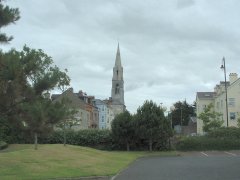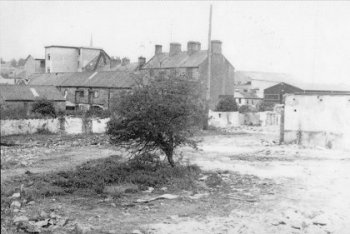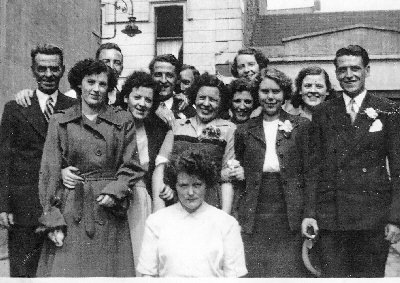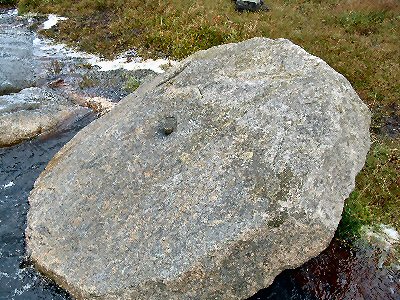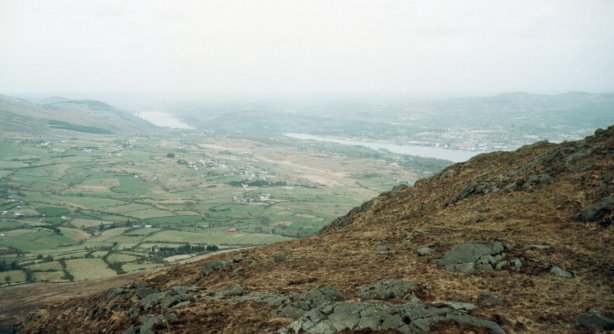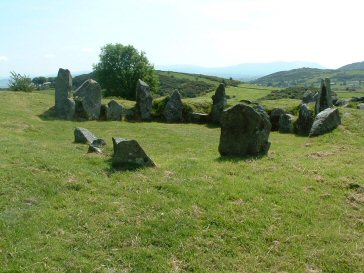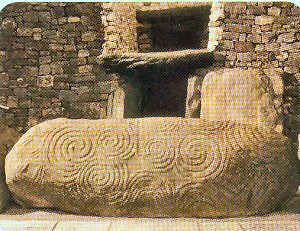Slieve Gullion: either from the Ulster Cycle hero, Cu Chullain or from the Gaelic for ‘mountain of holly’
Carrickatuke: ‘rock of the hawk’: a mountain – and district – around Newtownhamilton [after Hamilton, the Planter] in the townland of Armaghbrague [false Armagh, where St Patrick is said first to have established a church]
Silverbridge: from Be
Culture
Placenames’ Derivation A
Altnamackan: Alt na Maighin =‘height of the little plain’ or ‘height of the parsnips’ if it derives instead from Alt na Meacan
Anaghaveky: An Achadh Beihhy = ‘pleasant birch field’: alternative, Eanach an Bhacaigh = ‘the beggar’s marsh’
Annaghgad: Aonach na ngaduidne = ‘the robber’s fair’: alternative, Eanach nag had = ‘osier marsh’
Annaghmar: Ath na marbh = ‘fort of the dead’ from the megalithic tomb there.
Assan: Easan = ‘waterfall’
Ballymacone: Baile Mhic Comhghain = ‘McCone’s townland’ or ‘McKeown’s townland’. So Ballynahone [Ballinahone] : ‘McCann’s townland’, and Ballynahonemore = greater McCann townland.
Ballynacarry: Baile na Cora = ‘town of the weir’
Ballynaclosha: Baile na Cluaise = ‘townland of the ear’ or ‘of sand-hole’
Ballynagapple: ‘townland of horses’
Ballinarea: Perhaps from Ree [river name, Old Irish = water] or Ri [kings]; in
Newtownhamilton, on County River – strangely, Ballinare Gardens also marks the County boundary in Newry
Ballintemple: ‘town of the church’
Ballymoyer: Baile na mhaoir = ‘townland of the stewart’, traditionally people of the name were stewarts of the Book of Armagh
Corneonagh: ‘round hill of the river’, recently perversely interpreted in a Newry housing development as ‘Carney Hall’ in the townland of Carneyhaugh (ugghh!)
Breen’s Fort
It is perhaps the folk tales of ill luck that befell those who interfered with hill forts that helped preserve these for thousands of years.
She was dark iver after!
‘A woman lived up the mountain there but she’s dead and gone this many’s a year.
Gaelic Place Names 1
Perhaps the principal extant repository of our ancient Gaelic language in everyday use among the majority of citizens is our wealth of local place names. It is important to continue to use them, especially in addressing envelopes, where they can precede the modern post codes. Drumcashellone [Eoin’s rocky hill fort] Greenan [sunny place] Meigh [plain] and so on.
The derivation is centuries – sometimes millennia old, and often disputed. The following list is neither comprehensive [in fact, just a random few, to begin with] nor undisputed and is offered for advice only. Be aware that alternative possibilities, usually just as valid, exist. Most people are happy to have one explanation to cling onto.
Drumsallagh – Mucky hill, or Hill of the Herds
Edenderry – Slope of dark trees
Coolnacrann – Remote spot of the trees
Meenan – Mossy place
Ballinskeagh – Place of hawthorns
Scarva – Watershed
Creevy – Bushy place
Derrybeg – Small oak wood
Ballyvarley – Place of the slaughter
Aghaderg Red [bloody] field [ Battle of Aghaderg c.350]
Loughbrickland Lake at Bricriu’s place
Lisnabrague – Fort of the games
Legananny – Stone of the Assembly
Lisnagead – Fort of the Hundred [from Conn of the 100 Battles]
Shankill – Old Church
Ballinteggart – Priest’s townland
We will concentrate next on place names of Creggan parish. First, by way of light distraction, a related story. You know of course, that mor and beag are big and small; coill is church and fir and mna, men and women respectively. So Kilmore derives from big church, and Kilnaman from church of the women. Keep this in mind for a moment.
It had been a long, hard winter and Tommy Donaghy, living in the townland of Kilnaman at the foot of the mountain, hadn’t seen his oul uncle Bertie from across the valley in Kilmore for some ten weeks. Bertie lived alone and wasn’t as fit to look after himself as he once was.
Tommy woke up one fine April morning and decided he’d go ceili-ing. He pulled on his clothes, his winter woollies, his heavy boots and socks, his overcoat and muffler and thick gloves and eventually he was ready to step out onto the street. It was early morning so Tommy knew he had time and enough to get there and back before dark.
He hadn’t reached the crossroads below before he was stopped in his tracks by a group of men wearing khaki uniform and talking with strange accents. Their leader raised his hand to stop Tommy.
‘Excuse me, Paddy,’ he said, for he must have mistook him for some one else, ‘But do you mind telling me where you have just come from?’
Tommy didn’t want to correct him on the name, for he thought that’d be impolite, him being a stranger and all to these parts. He smiled,
‘Sure I don’t mind at all, at all, and thank you for asking.’ He smiled again. ‘Sure I’m after coming from Kilnaman!’ Tommy concluded triumphantly.
Yer man looked at him askance. Then he called all his friends to gather round. ‘Wait till yous hear this one, fellas,’ he roared. ‘Could you tell us once more where you have just come from, Sir?’
‘No, no, no. Not Sir, at all, at all. Just plain Tommy.’ Then he remembered, ‘Or you can call me Paddy, if you like!’
‘And of course. Sure I’m just coming from Kilnaman.’
‘I’ll bet ye are! And could you tell us where you are going now?’
‘I cud surely! Sure I’m just going to Kilmore!’
The last we heard, they took Tommy off to a place called Maghaberry, where he’s living in something called an aitchblock, whatever that might be!
Photo: c.1932 Frank McCullagh, his mother Bridget, Mrs Jones, his sister Dolly – Monaghan Street
Wee Folk & their doings
Alice McParland wus far too fond of hoardin’ [herding] the cows in the forth as long as iver there wus glimmer of light.
Sundays Wells
‘It wus always called the Blest Well [Sunday’s Well, Glen, Newry: also St Moninna’s Well, Killeavy] an’ the cures were after sunset or before sunrise.
Ye had till leave somethin’ behind ye or it wus no use. But I wus a hard-workin’ man all me lfke, an’ with the best of health, so I didn’t be troublin’ the well.
Lisbanmore
Lisbanemore was a cashel [rock fort] in Killeen on the eastern extremity of the Ring of Gullion.
The following rambling account was recited – some generations ago – to a passing tourist!
Is it Lisbanemore ye’ve come till see?
The Changeling
This couple had a wee holding in the West of Ireland and a locka acres of land, a small house and in the first year of their marriage they had a baby. very long ago!
